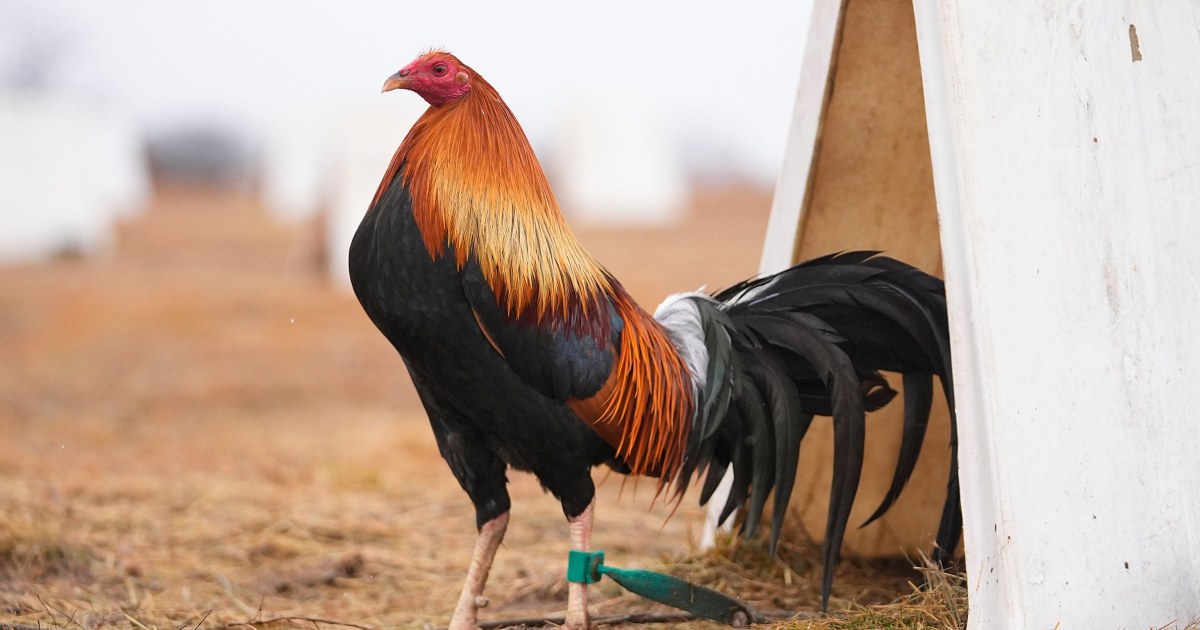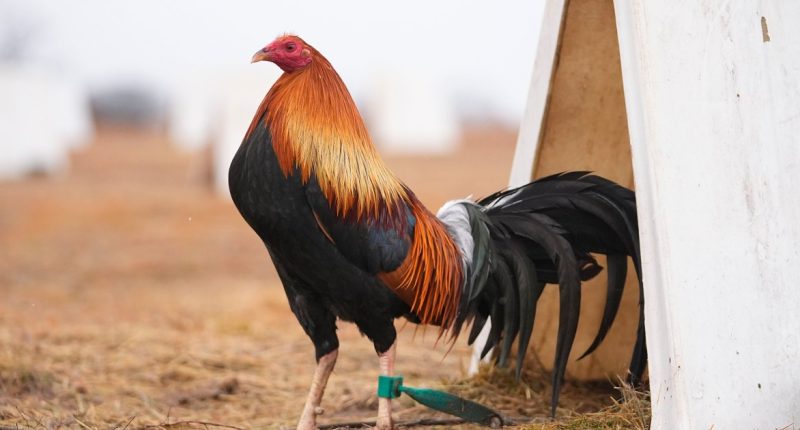
Devore said he and others raise the birds to participate in poultry shows and sell them as breeding stock overseas. While cockfighting is illegal in many countries, it remains legal and popular in some Mexican states, the Philippines and some countries in southeast Asia.
“We represent game fowl farmers who breed and raise game fowl, but not for fighting purposes,” said Devore, himself a game fowl breeder.
But Devore acknowledged a former district director for his organization who has since resigned was arrested and charged with facilitating a cockfight after authorities in Carter County raided a cockfighting pit with more than 100 people in attendance. That criminal case is pending.
Devore and other members acknowledge they’re operating in a gray area of the law and say reducing the penalties would remove the fear of felony criminal charges hanging over their heads.
The effort is welcome news to Troy Thompson, a former high school teacher and coach who now works full-time raising thousands of birds every year on his 55-acre ranch dotted with white, tent-like structures near the town of Wilson in far southern Oklahoma, just 30 miles north of the Red River border with Texas.
Thompson, 50, said the chickens on his farm, who are kept on foot tethers so they don’t fight with one another, are given vitamins, green grass year round and the highest quality feed he can buy. He said his chickens have a much better life than they would on a typical poultry farm, where they’re raised in a tiny cage and slaughtered at about six weeks old.
“I had a rooster pass away last week that was 10 years old,” he said. “They have a lot better life living here than they’re going to have on a Tyson poultry farm.”
Thompson said he grew during a time when rooster fighting was legal and dozens of farms dotted the rolling hills of southern Oklahoma. The name of his boyhood T-ball team was the Dillard Fighting Cocks.
“Would that go over today?” he asked. “It’s mind blowing that you went from perfectly legal to facing a 10-year prison sentence.”
And while some law enforcement officers and prosecutors have been cracking down recently on those who raise and fight birds, with busts recently in both urban and rural communities, prosecutors say it’s unlikely anyone has been sentenced to prison for cockfighting.
“I would say there’s probably almost none (in prison),” said Greg Mashburn, the top prosecutor for three central Oklahoma counties. “In the 18 years I’ve been DA, we’ve only had two cases.”
Still, Mashburn said it’s important to enforce anti-cockfighting laws because there is often a criminal element engaged in the activity that often involves illegal drugs and gambling.
“It’s also cruel to the animals,” Mashburn said. “And where do you draw the line? If we allow that with chickens, why not dogs or other animals fighting to the death?”
Still, some animal rights supporters say other local sheriffs and prosecutors often turn a blind eye to the practice. Although the cockfighting ban passed in 2002 with 56% of the vote, 57 of the state’s 77 counties were in favor of keeping cockfighting legal.
Drew Edmondson, a former county prosecutor and attorney general for Oklahoma, now serves as a law enforcement co-chair for Animal Wellness Action. He said it’s easy to understand why some elected officials in Oklahoma, even sheriffs, might look the other way when it comes to cockfighting.
He called it a combination of money and politics.
“For local politicians, it’s a pretty easy call when 60, 70, 80% of their county voted ‘no’ on the issue, to soft pedal it and not treat it like a serious crime,” he said.
Source: | This article originally belongs to Nbcnews.com










